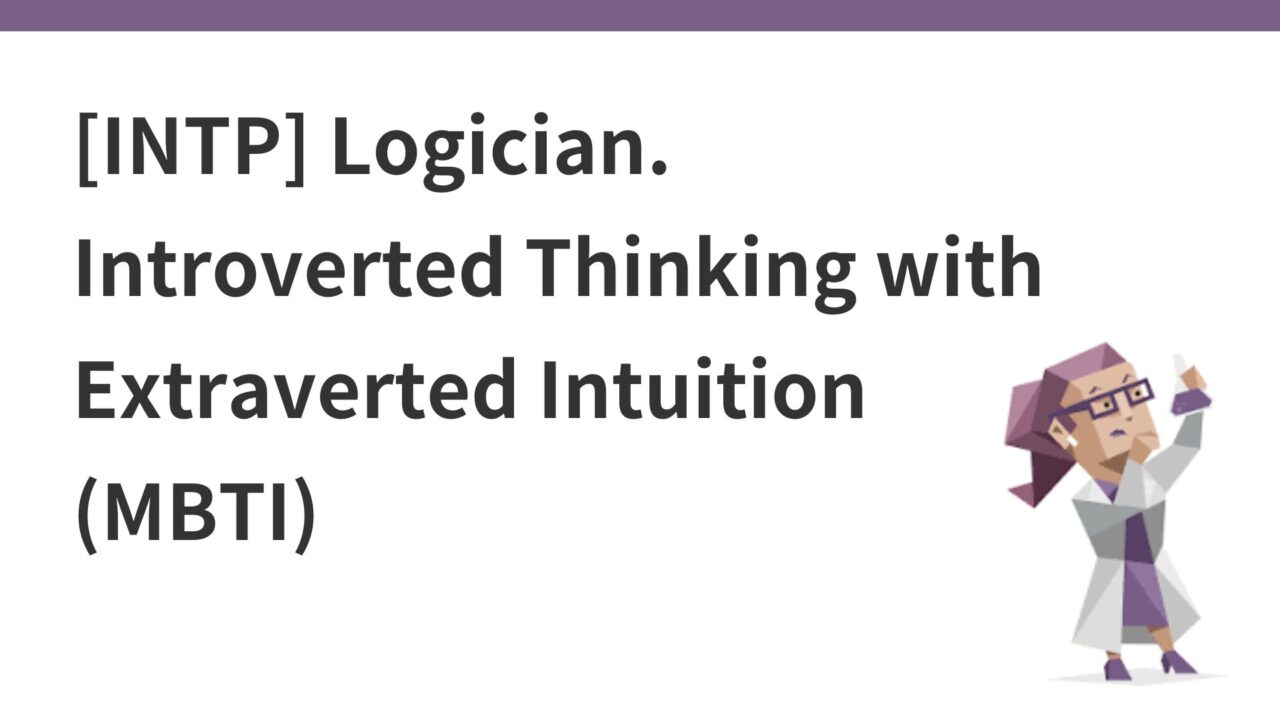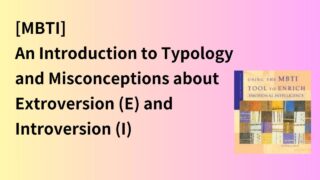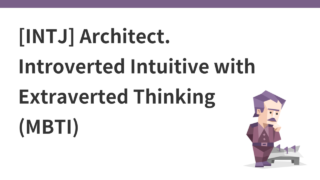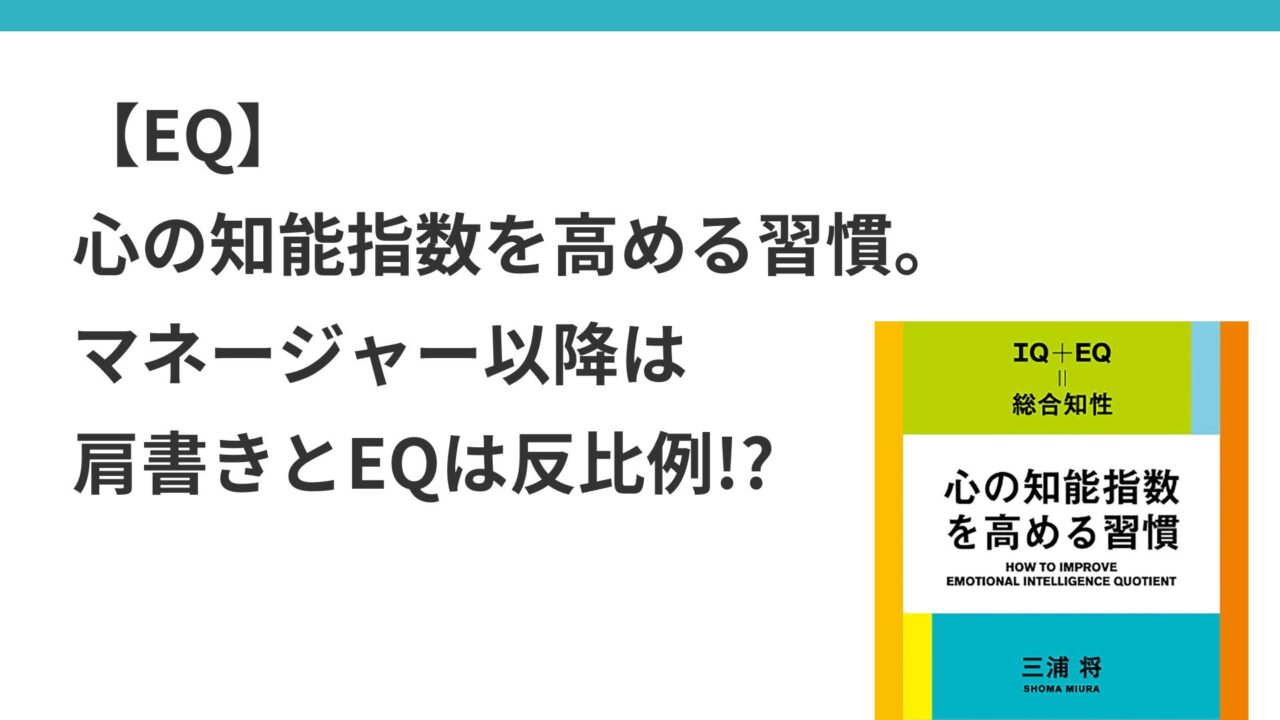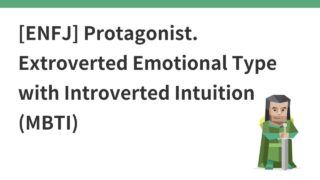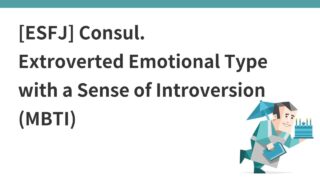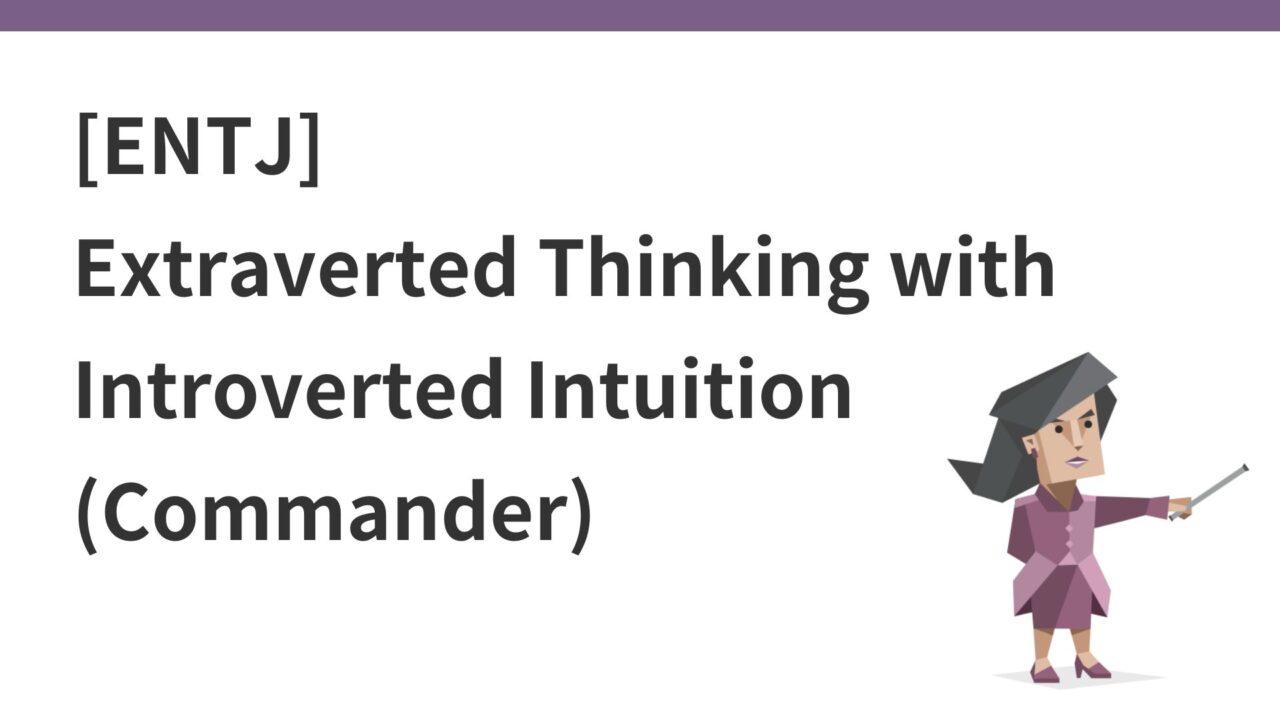- Introduction.
- Public Impressions of INTPs
- INTP: Introverted thinking type with extroverted intuition
- Difference between INTP and INTJ: Divergence and Convergence
- Impression of INTP’s surroundings: thoughtful and critical
- To reinforce the extroverted feelings (Fe) of inferior function
- Communication features: logical and direct
- Reactions during stress and points for improvement
Introduction.
I will summarize the following perspectives on each MBTI personality type.
- Characteristics of the primary and auxiliary functions and the decision-making process
- Impression to the surroundings
- Inferior Functions and How to Enhance Inferior Functions
- Communication Features
- Reactions during stress and points for improvement
- Communication Styles and Points to Consider
In this issue, we will discuss INTPs.
Public Impressions of INTPs
If you Google INTP, related searches include “INTP socially unfit,” “INTP genius type,” “INT P not interested in others,” “INTP too smart,” and “INTP crazy.”
It is quite a terrible thing to be told.
He is known as a “logician,” and his famous names include Einstein, Bill Gates, Newton, and many others.
INTP: Introverted thinking type with extroverted intuition
The cognitive functions of INTPs are in order of development as follows
- Primary function (the function you are most aware of): introverted thinking (Ti)
- Auxiliary functions (functions that function well but are difficult to recognize in oneself): extroverted intuition (Ne)
- Third function: introverted sensation (Si)
- Inferior function: extroverted affect (Fe)
The following is a brief description of how each cognitive function affects an individual’s perception and behavior.
| cognitive function | Inward (i) | Outgoing (e) |
|---|---|---|
| Intuition (N) | Pattern recognition – inner insights and future predictions | Explore new possibilities – ideas and abstract concepts |
| Thinking (T) | Logical analysis – building internal theories and organizing thoughts | Objective judgment – decision making for efficiency and fairness |
| Emotion (F) | Deep empathy – a deep understanding of personal feelings and values | Social harmony – forming emotional connections with others |
| Sensation (S) | Details of reality – reflection of inner concrete memories and experiences | Actual experience – direct interaction and action with the outside world |
INTP is a process of using extroverted intuition (Ne) to make decisions based on introverted thinking (Ti).
Ne-Ti: Integrate a variety of information and ideas to strengthen and extend a pet theory.
Extroverted intuition (Ne): world explorer
Extroverted intuition (Ne) is like a window through which INTPs receive various information and ideas from the world around them. Through this window, INTPs are good at finding new possibilities and ideas that no one else has found yet. Divergent thinking is encouraged, and multiple perspectives are held. They often pursue multiple ideas simultaneously and consider how each theory or concept can work together.
For example, when they see an ordinary tree branch, they may think, “Maybe I can make something new with it,” or they can make a completely new proposal for a school project. For them, it is always very interesting to see what will happen and what new things they can discover.
Introverted thinking (Ti): logical thinking
Introverted thinking (Ti) is the ability to think carefully within oneself about the information received; INTPs use this ability to compare information obtained externally with their own knowledge and experience, and to verify internally whether it is logically correct and makes sense.
For example, when they learn a new scientific theory, they not only memorize it, but also think deeply about “why it is so” and try to deepen their own understanding.
Decision and Action Processes
Using these two functions, INTPs make daily choices and decisions. The extroverted intuition proposes, “I have this new idea,” and the introverted thinking examines it and evaluates, “Is this theoretically viable or not? Through this process, INTPs can generate highly original and innovative ideas. Sometimes, however, they tend to come up with ideas that are so far from reality that it is difficult to shape them into reality.
Difference between INTP and INTJ: Divergence and Convergence
While both INTPs and INTJs are similar in their emphasis on internal thought processes, there are significant differences in their approach and focus.
Thinking Process Focus:.
- INTJs: They use introverted intuition (Ni) to have long-term goals and visions, and extroverted thinking (Te) to make concrete plans to achieve them. They look to the future and efficiently move toward their goals.
- INTP: Explore various possibilities and ideas using extroverted intuition (Ne) and organize them internally and logically with introverted thinking (Ti). They focus on exploring knowledge and building theories, choosing the most logical of many options.
Approaches to Action:.
- INTJ: Focuses on efficiency and results and follows a plan. Prefer to follow step-by-step procedures to achieve goals.
- INTP: Inquisitive, always seeking new information and ideas. Tend to spend more time in consideration than execution.
INTJ takes a goal-oriented, systematic approach, whereas INTP focuses on the exploration of information and the analysis of theories.
INTPs tend to broaden their information and ideas (divergence), expanding the scope of their knowledge by constantly exploring new things. In contrast, INTJs are adept at narrowing down (converging) information toward a specific goal, moving toward that goal efficiently and strategically.
Impression of INTP’s surroundings: thoughtful and critical
INTPs, with the major cognitive functions described above, introverted thinking (Ti) and extroverted intuition (Ne), are likely to give the following general impressions.
- Thoughtful: INTPs tend to consider situations and problems in depth. They seek grounded theory and logic in everything they do, and they value the time to think things through carefully.
- Independent-minded: Because they act according to their own internal logic, they often think and make decisions independently, without much influence from others. This gives the impression of a strong independent mind.
- Reserved and introverted: tend to be reserved in social settings and avoid standing out in a crowd. They are introverted, preferring to spend time absorbed in their own thoughts rather than engaging deeply with others.
- Curious: They are very curious about new knowledge and information and are interested in continuing to learn. This characteristic gives people the impression of being intelligent and curious.
- Logical and objective: Emphasizes objective and logical analysis of all events and information. This often gives the impression of being calm and rational.
- Very Critical: May be critical of information and ideas that do not fit one’s internal logic. This can sometimes be perceived as too harsh.
To reinforce the extroverted feelings (Fe) of inferior function
The inferior function, extraverted affect (Fe), is relatively the least developed.
Extroverted emotions emphasize harmony with others, social connection, and sharing of feelings. Since this function is weak in everyday life, it is recommended that this function be strengthened by
Participation in social activities
- Volunteering and participating in community events can increase opportunities to engage with others and understand their emotional needs and reactions.
Emotional Expression Practice
- Cultivate the ability to understand and express one’s feelings by keeping a diary and engaging in creative expressive activities (art, music, literature, etc.).
Click here for an article on how to keep an emotional diary.
Emphasizes emotional interactions with others
- Strive to be sensitive to one’s own emotions and those of others through deep conversations with friends and family.
- Have frequent opportunities to receive feedback from close colleagues you work with.
Incidentally, the types with the most developed extraverted effect (Fe) are ENFJs and ESFJs; ENFJs and ESFJs are active in social activities and express their feelings naturally. It may be useful to observe their behavior and recognize their differences from themselves.
It might be a good idea to pay attention to how they express their emotions and gradually incorporate them into your own behavior, starting with the parts that are easy to incorporate.
Communication features: logical and direct
- Logical and direct: Emphasizes logic and precision. Direct, but often abstract, language, can make it difficult for listeners to understand exactly what is intended. It is important to use concrete examples and to take others’ perspectives into account when communicating.
- Seek the views of others to better understand, not to leave a good impression. Actively offer ideas and influence through analysis when problem-solving.
- Do not get involved because you are not particularly comfortable with personal feelings. By maintaining an open attitude toward emotion-based feedback, you will be able to communicate effectively with a wider audience.
- First, make critical and skeptical comments, and then take an interested but distanced stance from the situation.
- Disgust and upset when arguments lack logic and the integrity of the analysis is questioned.
Reactions during stress and points for improvement
INTPs are confident in their intellectual abilities and can realistically use their self-evaluations to relate to their abilities and accomplishments. On the other hand, they often recognize their emotions and feelings long after the interaction or event.
Reactions under stress
- Excessive introspection and analysis: INTPs may overanalyze using introverted thinking (Ti) when trying to solve problems. This can cause them to get stuck before taking action.
- Difficulty adapting to social settings: because extraverted affect (Fe) is a subfunction, he tires easily in social situations and in situations with high emotional demands.
- Delayed adaptation to change: poor adaptation to new environments and sudden changes, can lead to stress.
- The gap between unrealistic ideals and reality: Because they do not have introverted intuition (Ni), they may perceive a large gap between ideals and reality, which can easily lead to frustration.
Key Points for Improvement
- Accumulate small actions: To smooth the transition from analysis to action, it is important to set goals in small steps and move forward one step at a time.
- Set realistic expectations: Having realistic expectations of yourself can help close the gap between ideal and reality and avoid disappointment.
- How to balance social activities: Avoiding participating in more social activities than necessary and focusing on relationships that are meaningful to you can reduce social pressure.
- Importance of self-disclosure: INTPs often tend to remain in their own inner world, but self-disclosure is an important aspect of building relationships, so start with small self-disclosures and gradually expand their scope
INTPs are personalities who, through their introverted thinking (Ti) and extroverted intuition (Ne), construct their own worldview and explore new possibilities. They are known for their deep exploration of theory and logic, often generating innovative ideas. However, this analytical approach can create challenges in real-life execution and emotional interactions.
